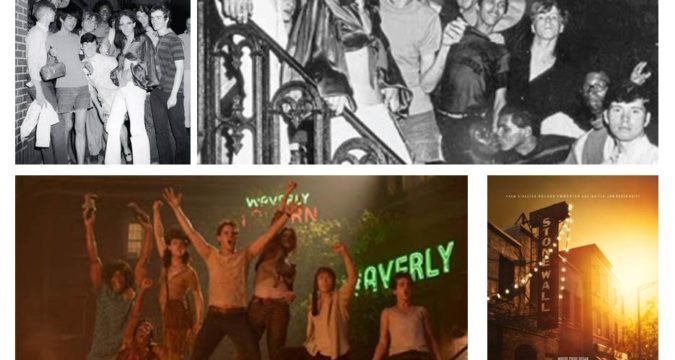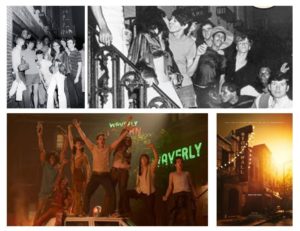

A trailer released for Roland Emmerich’s film Stonewall, a fictionalized accounting of the 1969 riots in New York City widely cited as the public “coming out” of the modern gay rights movement, has sparked calls for boycotts of the film from critics who claim that by making the film’s main character a young white man from the Midwest, Emmerich whitewashes and cis-washes the riots that they say were largely led by transwomen and people of color.
The film stars Jonathan Rhys Meyers, Joey King, and Ron Perlman, with British actor Jeremy Irvine playing Danny Winters, a young man who escapes homophobia in the Midwest and makes his way to New York, where he stumbles into the mob-owned Stonewall Inn in the early days of the gay rights movement. Roadside Attractions, the film’s distributor, has scheduled it to be released on September 25, 2015.
But first, the trailer.
Jim Provenzano, author and longtime journalist for the gay press, particularly the Bay Area Reporter, has written an extensive commentary about the controversy on his website. Of the riots, he summarizes:
First, some facts. The Stonewall riots emerged when drag queens, gay men, some white, some Black, some Latino, and some simply self-proclaimed ‘queens,’ were harassed by New York City cops as yet another raid on the small gay bar in Sheridan Square faced more harassing intimidation. People refused to get into paddy wagons, and violent reactions ensued.
— Jim Provenzano, August 8, 2015
The basic facts of the Stonewall riots are well known, but there are conflicting accounts of the riot’s details. The riot is probably the single most mythologized event in gay rights history, certainly of the modern era. Provenzano cites one comment about studying the riots:
There has long been so much deliberate myth-making about the Stonewall riots that Martin Duberman in his eponymous 1993 book on the subject found it virtually impossible to trust most of his informants. While some of the people involved would have called themselves “drag queens” or “transvestites” (I don’t think “transgender” was a word used) there were also, by many accounts, a fair number of a type of gay man that has almost ceased to exist: i.e. out and out fairies, those men who would wear “face” (i.e. powder, eye-make up, lipstick), perhaps use henna, but who would not otherwise try to erase their maleness.
— Anonymous comment cited by Jim Provenzano, August 8, 2015
Those who participated in the riots were a varied sort. “If you read the actual historical accounts there is no question that People of Color and drag queens played a role,” historian John Winkleman is quoted on Provenzano’s site. “However, the actual Stonewall had a white and cisgender majority of patrons. The most reliable accounts suggest it was a male presenting woman who threw the first punch and not Marsha Johnson nor Sylvia Rivera. David Carter pretty much proves that the story that this person was Storme DeLavarie is also probably not true.”
Emmerich released his own statement about the backlash:
I understand that following the release of our trailer there have been initial concerns about how this character’s involvement is portrayed, but when this film – which is truly a labor of love for me – finally comes to theaters, audiences will see that it deeply honors the real-life activists who were there — including Marsha P. Johnson, Sylvia Rivera, and Ray Castro — and all the brave people who sparked the civil rights movement which continues to this day. We are all the same in our struggle for acceptance.
— Roland Emmerich, quoted on Queerty
The degree to which pioneers like Marsha P. Johnson, Sylvia Rivera, and Ray Castro will be recognized in the film isn’t clear from the two-minute trailer. We encourage readers to check out Jim Provenzano’s more detailed blog post for further discussion.